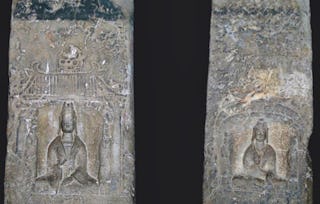Jewish Diaspora in China is a unique experience for world Jewry, as China is the only country in Far East that has had Jews living in its society for over 1,000 years. Documentary evidence shows that Jews started to live in China no later than the Tang Dynasty (618–907). The famous Kaifeng Jewish community, which was established in Kaifeng, the Chinese capital of the Song Dynasty (960-1279), is but a best-known example. However, the largest Jewish Diaspora in China appeared in modern times. In over 100 years, from the mid-19th century to the mid-20th century, about 40,000 Jews came to China and lived in newly-established major port cities such as Hong Kong, Shanghai, Tianjin, and Harbin. Jewish communities composed of these Jews became an essential part of the economic and social life of those modern Chinese cities. What brought such a large number of Jews to China? Where did these people come from? How did they arrive? Were they all in China at the same time, and were there any differences among them? What happened to them after they arrived? Where are they now? The story of Jews in modern China is certainly a fascinating and up-lifting one. This course will examine these questions and more.

Jewish Diaspora in Modern China
6 days left! Gain next-level skills with Coursera Plus for $199 (regularly $399). Save now.

(105 reviews)
Skills you'll gain
Details to know

Add to your LinkedIn profile
7 assignments
See how employees at top companies are mastering in-demand skills

There are 8 modules in this course
This course, "Jewish Diaspora in Modern China," will give you an understanding of the major issues related to the history of Jews in China in Modern times.
What's included
1 video1 reading
In this module, we will introduce pre-modern Chinese society, wars with Western Powers, and the Open Door Policy. We will also analyze major causes that brought Jews to China. In particular, we will focus on waves of migrating Sephardic and Ashkenazi Jews to China, which mark the beginning of the history of the Jewish diaspora in modern China.
What's included
1 assignment
In this module, we will study four Jewish communities established in Shanghai from the second half of the 19th century to the mid-20th century, with a special focus on the Sephardic Jews and European Jewish refugees.
What's included
1 video1 assignment1 peer review
In this module, we will discuss Harbin as a newly established modern Chinese city. We will explore the Jewish communal life in the city from its leadership, various Zionist organizations, business, observance, and relations with adjacent Jewish communities in the region and in the country.
What's included
1 video1 assignment1 peer review
In this module, we will focus on the Jewish communal life in the port city of Tianjin, tracing its beginnings, development, and decline. We will also introduce some well-known Jewish individuals living in the city.
What's included
3 videos1 assignment
In this module, we will explore the special status of Hong Kong as a center of Jewish life in China. We will trace the ups and downs of Jewish life in the city and the unique roles the Hong Kong Jewish Community played in the city-- the only Jewish community with a sustained, uninterrupted history in China over the past 160 years.
What's included
1 assignment
In this module, we will analyze the factors that spurred the departure of about 40,000 Jews from China. We will also discuss their contributions-- economic and cultural-- on Chinese society today.
What's included
2 videos1 assignment1 peer review
In this module, we will describe the re-establishment of Jewish communities in contemporary Chinese society, especially in Beijing and Shanghai, following the adoption of China's open-door policies and economic reforms in the 1980s. We will also discuss the impact of the re-establishment of Jewish communities on Chinese academia.
What's included
3 videos1 assignment2 peer reviews
Instructor

Offered by
Explore more from Governance and Society
 Status: Preview
Status: PreviewUniversity of California, Santa Cruz
 Status: Preview
Status: PreviewThe Chinese University of Hong Kong
 Status: Preview
Status: PreviewThe Chinese University of Hong Kong
 Status: Preview
Status: PreviewThe Hong Kong University of Science and Technology
Why people choose Coursera for their career

Felipe M.

Jennifer J.

Larry W.

Chaitanya A.
Learner reviews
- 5 stars
63.80%
- 4 stars
19.04%
- 3 stars
10.47%
- 2 stars
1.90%
- 1 star
4.76%
Showing 3 of 105
Reviewed on Oct 16, 2015
Very interesting subject! Although I would also like to learn about this subject in relation to
Reviewed on Aug 20, 2015
Very interesting subject. I have learned a lot of interesting history of the Jewish people.
Reviewed on Jun 27, 2016
Learned much. Instructor was well organized. Subtitles were extremely beneficial.
Frequently asked questions
To access the course materials, assignments and to earn a Certificate, you will need to purchase the Certificate experience when you enroll in a course. You can try a Free Trial instead, or apply for Financial Aid. The course may offer 'Full Course, No Certificate' instead. This option lets you see all course materials, submit required assessments, and get a final grade. This also means that you will not be able to purchase a Certificate experience.
When you purchase a Certificate you get access to all course materials, including graded assignments. Upon completing the course, your electronic Certificate will be added to your Accomplishments page - from there, you can print your Certificate or add it to your LinkedIn profile.
Yes. In select learning programs, you can apply for financial aid or a scholarship if you can’t afford the enrollment fee. If fin aid or scholarship is available for your learning program selection, you’ll find a link to apply on the description page.
More questions
Financial aid available,





